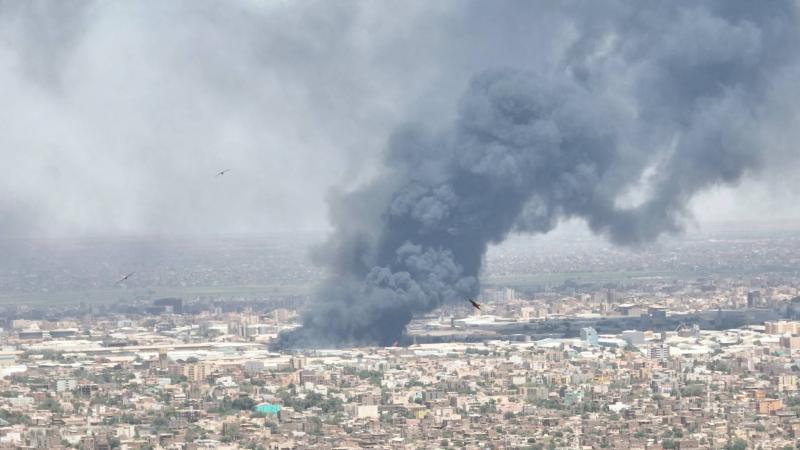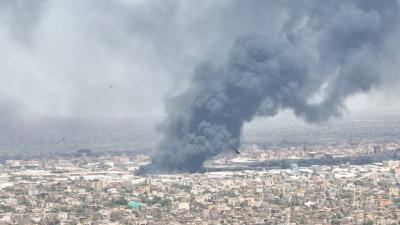Sudanese military aircraft conducted airstrikes in the capital, Khartoum, on Wednesday, despite both sides of the conflict agreeing to a new seven-day ceasefire starting tomorrow, Thursday. This undermines the chances of establishing a long-term truce that could alleviate the worsening humanitarian crisis there.
Martin Griffiths, the United Nations Under-Secretary-General for Humanitarian Affairs and Emergency Relief Coordinator, arrived in Port Sudan to "reaffirm" his commitment to assisting the Sudanese people. A spokesperson for him stated that improving the conditions for aid delivery through guarantees of safe passage would be a priority. The United Nations reported that the conflict has created a humanitarian crisis, forcing around 100,000 people to flee to neighboring countries without food or water. Humanitarian aid distribution has been disrupted in a country where about a third of the population already relied on assistance. The disaster could widen as poor neighboring countries suffer from the repercussions of the influx of refugees fleeing the conflict. Previous ceasefire agreements between the army and the Rapid Support Forces lasted between 24 and 72 hours, but none were fully adhered to. The power struggle between the two sides erupted in mid-April.
Tens of thousands of residents have left the Khartoum region and nearby cities fearing airstrikes and soldiers from the Rapid Support Forces, like Salma, a resident of Omdurman, who says she rarely gets to sleep at night there. The South Sudanese Ministry of Foreign Affairs stated on Tuesday that mediation efforts led by President Salva Kiir resulted in both sides agreeing to a one-week truce starting tomorrow until May 11, as well as the appointment of envoys to participate in peace talks. The current ceasefire is set to expire today, Wednesday. However, it is still unclear what the intentions of Army Chief General Abdel Fattah al-Burhan and Rapid Support Forces Chief General Mohamed Hamdan Dagalo, known as Hemetti, are.
Army fighter jets are bombing positions of the Rapid Support Forces in residential areas of the capital and its surroundings. The conflict has also spread to the Darfur region in the west of the country. The Rapid Support Forces were formed from tribal militias that fought on the side of government forces in Darfur against rebels in a civil war that started 20 years ago. Neither army leaders nor Rapid Support Forces leaders have shown any signs of retreating from their positions, nor does it appear that either side is capable of achieving a swift victory. The army and the Rapid Support Forces shared power as part of a UN-backed transition to democratic civilian rule that was supposed to lead to free elections and the formation of a civilian government.
The fighting has now entered its third week, primarily taking place in the capital Khartoum, one of the largest cities in Africa. The conflict has resulted in hundreds of deaths, with the Sudanese Ministry of Health reporting on Tuesday that 550 people have been killed, and 4,926 injured. Foreign governments are ending evacuation operations that have seen thousands repatriated. Britain stated that the last flight will leave Port Sudan today, Wednesday, urging any remaining Britons wishing to leave Sudan to head there.




